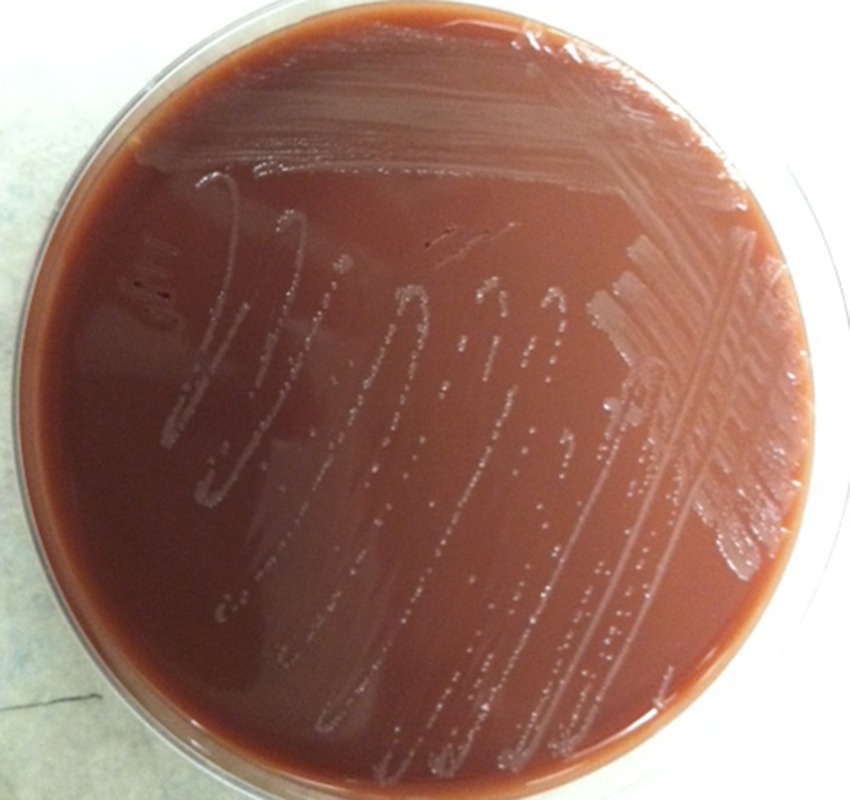Princeton University is Getting an Unapproved Vaccine for Students

bacteria Neisseria (similar to the Princeton bug) growing on an agar plate. Photo by Dr. Michael Misialek
Meningitis can be spread by kissing, and that’s why some students at Princeton University have implemented a “no kissing” rule at the college. Since March, six students and one visitor have been diagnosed with meningitis at Princeton. Fortunately, at this time, there haven’t been any fatalities. The CDC has determined that all the cases have been due to Neisseria meningitidis serotype B (no, that’s not a typo).
First of all, what is meningitis?
Meningitis is inflammation of the membranous linings of the brain and spinal cord. The most common symptoms of meningitis include fever, stiff neck, headache, and altered mental status. Some forms of the illness may be associated with a rash.
The problem is that in the U.S., the vaccine for serotype B is not approved by the FDA. According to Dr. Michael Lew, chief of infectious disease at Newton-Wellesley Hospital, serotype B is “tough to design an effective vaccine against due to its low immunogenicity.” Also, serotype B has been relatively rare in the U.S., until recently, which is cause for concern. According to the CDC, it was responsible for 160 of the about 500 meningitis cases in the U.S. last year.
So it’s growing, and we are unprotected.
What is Princeton doing?
The vaccine was approved for use in Europe and Australia earlier this year. Produced by Novartis, Bexsero protects against only the B serotype. The CDC and FDA have approved the importing of the vaccine for use at Princeton under an “investigational new drug” status. The risks of a using an unapproved vaccine is clearly being outweighed by the potential benefit of preventing a deadly disease.
The drug hasn’t been rigorously tested yet in the U.S. Critics feel this is yet another problem with the lengthy and regulatory intensive drug approval process in this country. It’s not unusual for this process to take several years and millions of dollars even if the drugs are already available in other parts of the world. Most recently the FDA passed the Safety and Innovation Act of 2012 (FDASIA) and created a “breakthrough therapy” designation to expedite the drug approval process.
What is Princeton telling students?
Princeton has been in close contact with students, faculty, staff, and parents. The vaccine should be available in early December with a second dose available in February. The university issued this warning:
“You can help prevent the spread of disease by increasing hygienic practices, and not sharing drinking glasses, eating utensils, smoking materials and other items.”
Can it happen at the universities here?
As illustrated by the Princeton outbreak, yes, it does now occur in the U.S. and of course it can happen here. It would appear that the incidence is on the rise. The current vaccine does not offer protection against serotype B. Perhaps the Princeton outbreak will serve as a call to action for further reform in the drug approval process.
Do I need the vaccination?
Most colleges require immunization for meningitis. According to the CDC, those that must get vaccinated include the following:
- You are a college freshmen living in a dormitory
- You are a military recruit
- You have a damaged spleen or your spleen has been removed
- You have terminal immune disorder (complement deficiency)
- You are a microbiologist who is routinely exposed to Neisseria meningitidis (the causal pathogen)
- You are traveling or residing in countries in which the disease is common.


